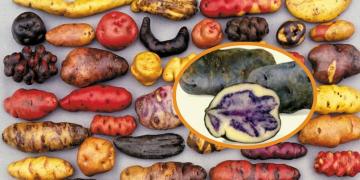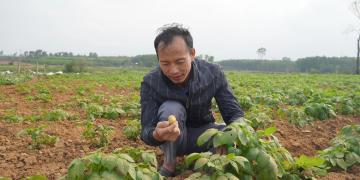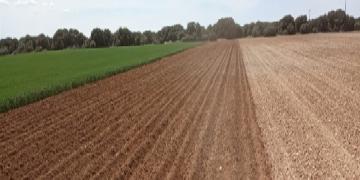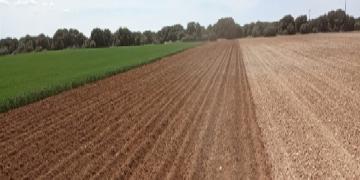EU: European agriculture faces an imminent crisis due to the elimination of essential plant protection products
The European agricultural sector faces a major challenge that threatens its medium-term viability: the growing shortage of effective plant protection products that allow farmers to protect their crops from diseases and pests.
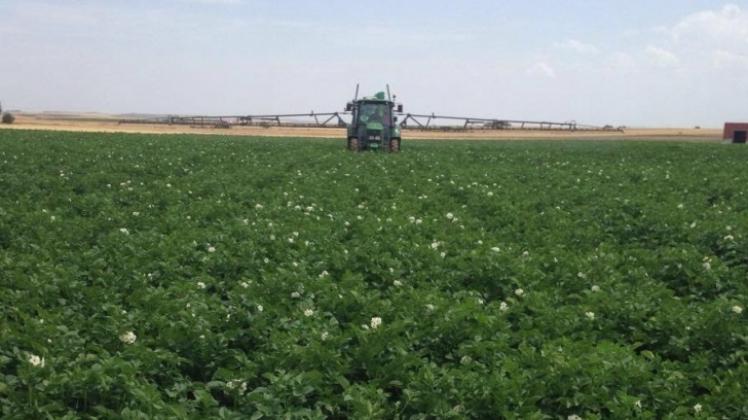
The European organization Copa-Cogeca—which represents farmers and agricultural cooperatives across the European Union—warns that if the European Commission does not act immediately to reform the licensing system and ensure effective alternatives, many productive sectors could disappear in the coming years.
For over a decade, the testimonies collected within Copa-Cogeca from representatives from various countries have highlighted a disturbing trend: the progressive abandonment of entire crops due to a lack of tools to address health threats. This situation, which rarely reaches mainstream media, is generating deep frustration among farmers, who feel increasingly helpless in the face of the challenges facing their business.
One of the most revealing figures of this phytosanitary crisis is the evolution of the number of active ingredients authorized for use in the EU. In 2001, there were around 900 active ingredients available. Today, that number has dropped to less than 470 and continues to decline. Since June 2019, 85 active ingredients have been phased out, and in no case have conventional alternatives been offered with the same efficacy and reach.
Far from slowing down, the process is accelerating. European authorities , under political and media pressure, have significantly tightened the system for approving plant protection products since the implementation of Regulation (EC) No. 1107/2009. This framework, which was approved with the aim of ensuring safer and more sustainable use of pesticides, has resulted in an extremely rigid system, where authorizations and reauthorizations are delayed and where the precautionary principle often prevails over technical and scientific criteria.
Without phytosanitary solutions
The effects are already being felt harshly. The cases of sugar beet and rapeseed are paradigmatic: without adequate phytosanitary solutions, both could experience harvest losses of 50%. In even more specialized sectors, such as nurseries, estimated losses reach 80%.
And these aren’t exceptions, but rather a widespread trend. "What was once a rare occurrence is now becoming the norm," Copa-Cogeca warns. If measures aren’t taken, Europe could be left without its own production of many strategic crops, as has already happened with some fruit trees in areas affected by diseases without approved treatments.
A particularly symbolic example is the potato. This vegetable, essential to the European diet, is threatened by late blight, a disease caused by the fungus Phytophthora infestans. This is the same pathogen responsible for the Great Irish Famine of the 19th century, which still causes devastating losses if left unchecked. The number of tools available to combat it has drastically decreased in recent years, and failure to act could result in yields dropping by up to 50%, with serious consequences for food security.
Adding to this situation is a structural problem that farmers have been denouncing for years: the lack of reciprocity in import regulations. While European producers must comply with increasingly restrictive regulations, imported food is not subject to the same requirements.
This creates blatant market inequality and unfair competition. "If we continue to ban substances without offering viable alternatives, while allowing products from countries that do use them to enter the market, we are condemning our farmers," Copa-Cogeca emphasizes.
This inconsistency also undermines confidence in the European project. Many farmers feel that Brussels legislates with its back to the countryside, and that political decisions don’t respond to technical criteria, but rather to ideological or media pressure.
Faced with this situation, Copa-Cogeca, together with the Plant Health Working Group, proposes four key principles to prevent further collapse and lay the foundations for a more balanced and sustainable model:
Review of the authorization system: The current reauthorization process for pesticides needs to be reviewed urgently to restore an approach based on a balance between benefits and risks. Many substances are being withdrawn without a solid scientific basis or due to administrative decisions that fail to consider the real agronomic impact.
Promoting alternative solutions: It is necessary to accelerate the authorization and availability of biocontrol products, as well as new genomic techniques that could offer sustainable solutions to agricultural health challenges. This requires more investment in R&D and fewer bureaucratic hurdles.
Realistic transition periods: Innovation cannot be imposed by decree. Research, approval, production, and distribution of new solutions take time. Therefore, transition arrangements must be established to avoid periods without effective crop protection.
Strict enforcement of trade reciprocity: If certain practices are prohibited in Europe, foreign products that do not comply with those same standards cannot be allowed into the EU. The EU must ensure regulatory coherence in its trade policy.
Although the situation is critical, Copa-Cogeca welcomes the fact that the European Commission appears to be starting to take notice of the problem. The recently presented Vision for the Future of Agriculture includes hopeful principles such as "no prohibition without alternatives."
However, the organization warns that these intentions must be translated into concrete and urgent measures, something they hope to see reflected in the simplification package announced for the fall of 2025. Otherwise, farmers will remain without the tools to address the challenges they face daily.
Europe is at a crossroads. In the coming months, the continent is playing not only the future of its agriculture, but also its food self-sufficiency, its rural fabric, and its environmental sustainability. Between the immobility of a suffocating status quo and a dogmatic environmentalism that ignores the countryside, there is a reasonable path forward, one that involves dialogue with farmers, science, and the reality on the ground.
“Time is running out,” Copa-Cogeca concludes. “Either we act now, or very soon there will be no one left in Europe to produce our food.”
Fuente: agronewscastillayleon.com

